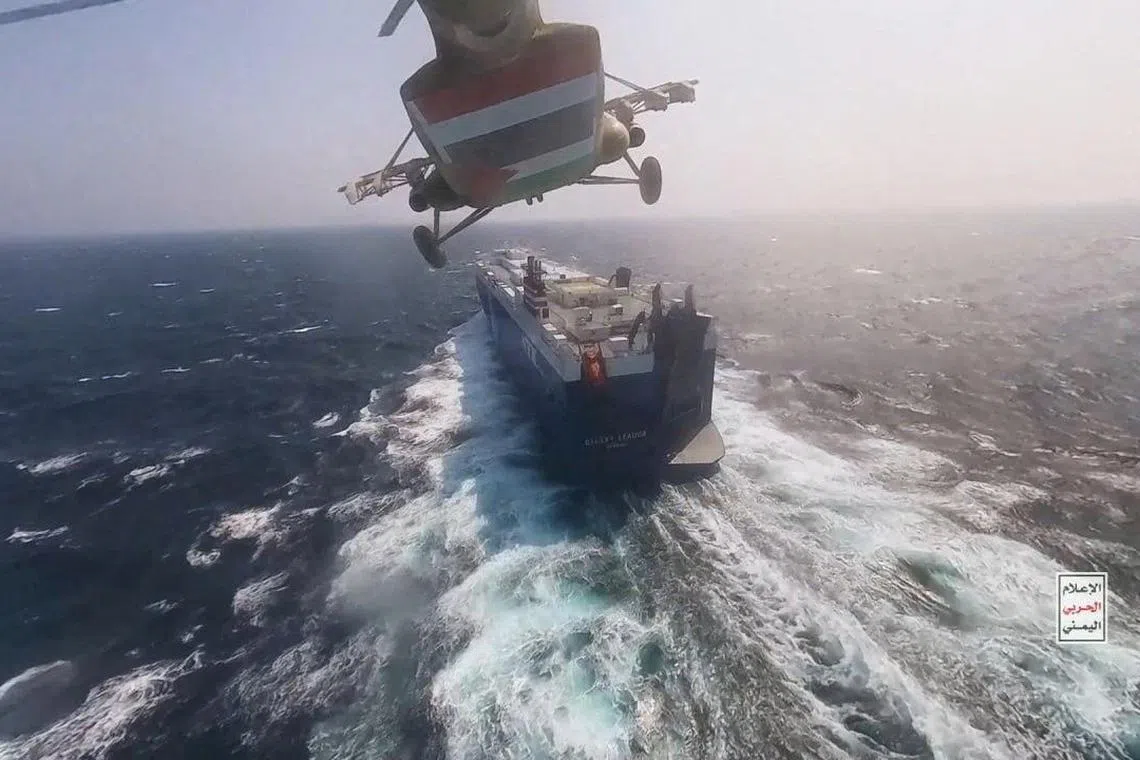UN maritime organisation says it’s working ‘tirelessly’ to solve Red Sea crisis
Sign up now: Get ST's newsletters delivered to your inbox

Houthi rebels have been attacking ships in the Red Sea since November, causing disruptions to global trade.
PHOTO: REUTERS
LONDON – The International Maritime Organisation (IMO) is working “tirelessly” to solve the Red Sea crisis, which is severely disrupting the global transport of goods, its head Arsenio Dominguez told AFP.
Yemen’s Houthi rebels, supported by Iran, have launched dozens of attacks against ships in the Red Sea since November, targeting boats headed for Israel in an act of “solidarity” with inhabitants of the Gaza Strip, which is in the grip of the war between Israel and Hamas.
Despite retaliatory strikes by the United States and Britain, the rebels are still launching attacks, firing at US ship Star Nasia and British vessel Morning Tide on Feb 6.
The IMO, the United Nations agency responsible for security at sea, is working to ensure that “parties continue to talk so that the situation does not degenerate any further, and we can return to a safe maritime environment”, said Panama-born secretary-general Dominguez on Feb 8.
“We are working tirelessly to coordinate action that will lead to a resolution,” he added from the IMO’s London headquarters.
The region is crucial for the global transport of goods, with around 12 per cent of global maritime trade normally passing through the Bab el-Mandeb Strait, which controls access to the southern Red Sea.
Many shipowners have decided to stop operating in the Red Sea, instead sending their ships on the longer route around the south of Africa.
But “this is not the ideal solution”, admitted Mr Dominguez, as it increases the cost of transport, and ultimately the price of the cargo.
“We now have more than 60 per cent of the annual tonnage that normally goes through the Suez Canal going around southern Africa,” he explained.
Insurance has also gone up, while increased fuel use is creating additional costs.
There is also a human impact, with crew having to spend extra days at sea, Mr Dominguez said.
The IMO’s objective is therefore to “provide practical and operational measures so that ships can continue to operate”, he added.
Despite the headwinds, he said he remained “optimistic” about a resolution to the conflict. AFP


